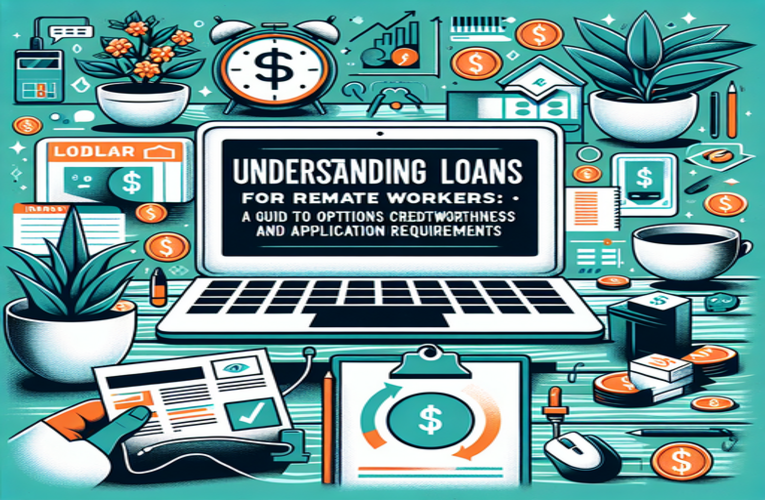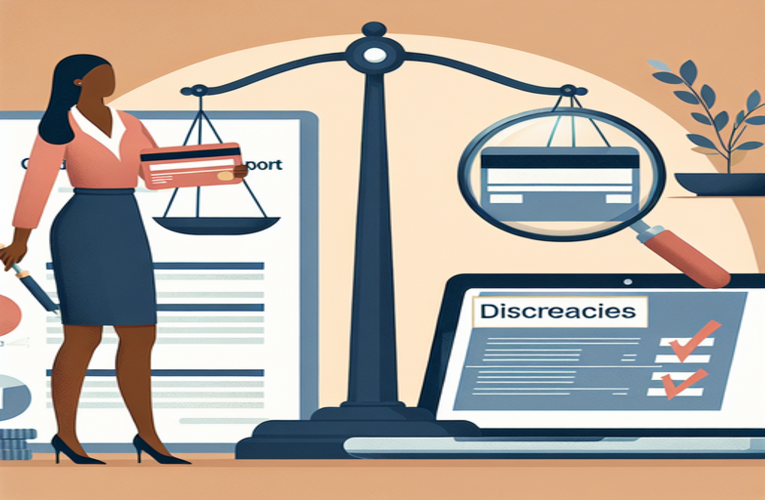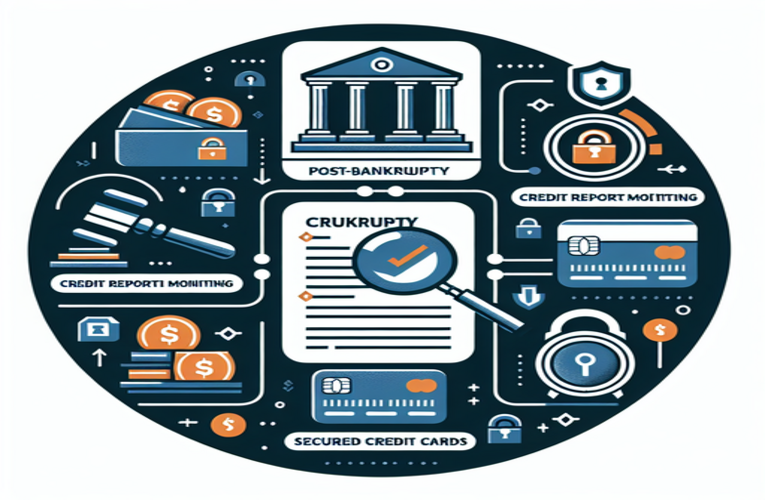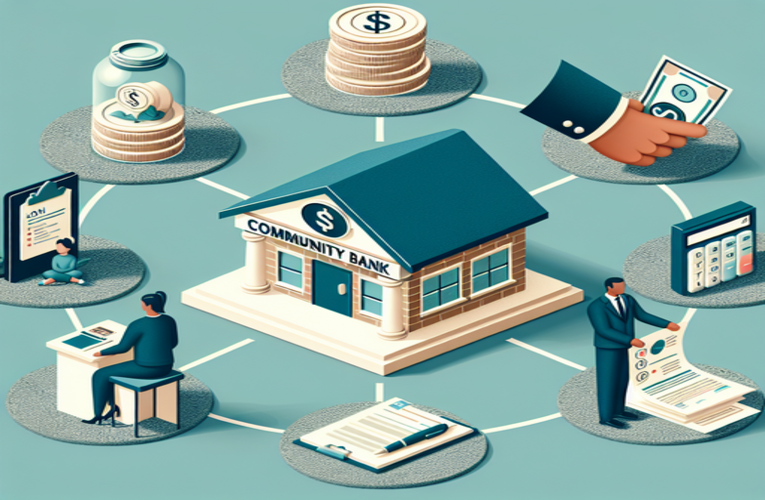Local community bank loan offers: understanding benefits drawbacks and the application process
In today’s economic landscape, understanding the loan offers provided by local community banks is crucial for anyone looking to secure financial assistance. Whether you’re planning to finance education, manage unexpected expenses, or seek personal loan programs from nearby banks, community banks offer a variety of lending solutions tailored to your specific needs. Unlike larger financial institutions, these local entities focus on fostering personal relationships and provide benefits such as competitive interest rates and more flexible credit requirements.
This article will delve into the advantages and challenges faced by borrowers when engaging with community banks. We will explore:
- The primary benefits of obtaining financing from local institutions.
- The potential challenges that borrowers may encounter.
- Effective strategies for navigating the loan application process.
By shedding light on these critical aspects, this guide aims to equip you with the knowledge necessary to make informed financial decisions, ensuring that you fully leverage the loan opportunities available through your local community bank. Join us as we explore the diverse landscape of community banking and uncover the opportunities waiting for you.
Navigating the diverse landscape of local community bank loan offers and regional banking loan solutions requires a careful examination of the benefits and challenges associated with these financial options. Borrowers seeking personalized service and competitive rates often turn to these community-based institutions for their unique financial needs.
Table of Contents
Key Advantages of Local Community Banks
- Personalized Customer Service: Local community banks are known for their exceptional personalized customer service. They often build strong, trusting relationships with their clients over time, resulting in a lending experience that feels more tailored and community-oriented. For example, loan officers at regional banks may take the time to understand a borrower’s individual circumstances, financial goals, and concerns, providing customized advice that larger national banks might not offer.
- Lower Interest Rates: Local banks frequently offer lower interest rates compared to their larger, national competitors, making them an attractive option for borrowers seeking affordable financing. For individuals looking to manage expenses such as medical bills, home renovations, or purchasing essential home furnishings, the reduced rates can result in significant savings over the life of the loan. According to a study by the Independent Community Bankers of America in 2022, community banks offered interest rates that were on average 0.5% lower than those of national banks for similar loan products.
- Lenient Credit Criteria: Community banks often have more flexible lending criteria, allowing borrowers with varying credit histories to obtain financing. This leniency is particularly critical during tough economic times when individuals may face financial hardships that affect their credit scores. For instance, someone recovering from a previous financial setback might find it challenging to secure a loan from a major bank but could be approved by a community bank that considers their overall situation and potential for repayment.
- Support for Local Economy: By choosing a local community bank, borrowers contribute to the growth and sustainability of their local economy. These banks focus on reinvesting funds into community projects, small businesses, and local development initiatives. For example, a portion of the interest collected from loans may be used to support local schools, infrastructure improvements, or community centers, thereby enhancing the quality of life for residents and fostering economic development.
Challenges of Local Community Banks
- Limited Digital Banking Features: While local community banks excel in personalized service, they may lag behind larger institutions in terms of technological advancements. Many do not offer comprehensive online banking platforms or mobile apps with the full range of features that tech-savvy customers have come to expect. This limitation can be inconvenient for borrowers who prefer to manage their accounts, make payments, or apply for loans online. For instance, the absence of real-time account updates or mobile deposit capabilities might be a drawback for some customers.
- Limited Financial Product Range: Local community banks might offer a narrower selection of financial products and services. While they may provide standard loan options and basic banking services, they often lack specialized products like international investment accounts, complex mortgage products, or specific types of insurance services. Borrowers seeking a one-stop shop for all their financial needs might find this limited range less convenient. For example, a business owner requiring foreign exchange services might need to seek additional providers.
While local community bank loan offers and regional financial services present numerous appealing benefits—such as personalized customer service and competitive interest rates—it’s essential for borrowers to evaluate their individual financial needs and preferences. By understanding both the strengths and limitations of these community-based lending options, borrowers can make informed decisions that align with their personal financial objectives and support their local economy. For instance, someone prioritizing digital banking convenience might weigh the benefits of personalized service against the potential inconvenience of limited online features. This analytical approach enables individuals to fully leverage the unique offerings of local institutions while being mindful of any potential constraints.
Understanding Personalized Financing Solutions for Education and Unexpected Expenses Offered by Community Banks
Community bank loan offers serve as a valuable resource for individuals seeking financing solutions tailored to their distinct needs, especially in the realms of education funding and unforeseen expenses. Unlike larger financial entities, these local banking loan solutions emphasize cultivating deep connections within their neighborhoods. This unique focus enables them to gain a comprehensive understanding of the specific challenges and financial circumstances faced by local borrowers. As a result, community banks often provide more flexible lending criteria and competitive interest rates, facilitating access to personal loans for those in need. For instance, a student seeking funding for college tuition might find that a community bank offers more personalized repayment plans and lower interest rates compared to national lenders.
Key Areas of Focus
- Education Financing: For students and families grappling with the rising costs of higher education, local community bank loan offers provide a lifeline. Community banks present various student loan options with terms thoughtfully crafted to address the financial realities students encounter. Unlike larger financial institutions that offer standardized loan packages, these banks take a holistic view of a borrower’s financial situation, considering factors such as current income, financial need, and future earning potential. For example, a community bank may offer deferred payment plans or interest-only payments while the student is in school. According to the Federal Reserve’s 2021 Small Business Credit Survey, community banks approved 70% of loan applications, highlighting their commitment to meeting borrowers’ needs.
- Addressing Unexpected Expenses: Life is full of unforeseen events that can strain finances, such as sudden medical emergencies, urgent home repairs due to natural disasters, or unexpected car breakdowns. In these situations, community bank financing offers can be a crucial resource. Community banks often enable quick access to funds, with streamlined application processes and faster approval times compared to their larger counterparts. For instance, while a national bank might take several weeks to process a personal loan, a community bank may expedite the process, providing funds within a few days. This expedited service is essential for individuals facing immediate financial pressures, helping them avoid high-interest alternatives like credit cards or payday loans.
- Personal Needs and Flexibility: Consider scenarios where additional financing may be necessary, such as purchasing new furniture for a growing family or planning a significant life event like a wedding. Community banks recognize these personal needs and often propose loans with practical terms, including direct deposits that can occur within just a few business days. The convenience of their services has increased, with many community banks now offering user-friendly online applications, ensuring that even those with demanding schedules can secure the financing they require.
- Community Support and Guidance: Local community bank loan offers not only function as a much-needed financial resource during tough times but also embody a sense of community support. By choosing to engage with these institutions, borrowers benefit from the personalized guidance and expertise of dedicated loan officers. These professionals play a crucial role in helping clients navigate the intricacies of the lending process, providing insights that are often lacking at larger banking institutions. For example, they may offer financial counseling or customized advice to improve a borrower’s long-term financial health.
Benefits of Community Bank Loan Offers
| Benefits | Description | Examples |
|---|---|---|
| Customized Repayment Plans | Community banks offer repayment plans that evolve with the borrower’s financial situation. | Flexible plans for student loans, deferred payments during hardship. |
| Quick Access to Funds | Faster processing of loans compared to larger banks. | Emergency medical expenses, urgent home repairs. |
| Personalized Guidance | Banks provide dedicated loan officers for client support. | Assistance in understanding loan terms, personalized financial advice. |
Local community bank loan offers represent a personalized approach to financing, emphasizing flexibility and responsiveness to individual needs. They cater specifically to individuals seeking educational funding, personal loans for unexpected expenses, or other customized financial solutions. By ensuring that their offerings are relevant and adaptive to evolving circumstances, community banks play a pivotal role in enhancing the financial well-being of local residents. They prioritize personalized service, relationship-building, and a commitment to understanding the unique dynamics of their clientele. For example, a borrower facing temporary unemployment might find that a community bank is willing to adjust repayment terms to accommodate their situation, something larger banks may not offer.
Understanding the Application Process for Local Community Bank Loan Offers
Navigating the path to obtaining financing through local community bank loan offers and regional banking loan services is essential for ensuring both approval and swift funding. Community banks frequently provide competitive interest rates and more lenient credit criteria compared to larger institutions, making them a favorable choice for a variety of borrowers, including those with less-than-perfect credit histories.
Essential Steps:
- Evaluate Your Credit Score: Begin by checking your credit score, as it serves as a fundamental indicator of your creditworthiness. While community banks may have more lenient criteria, a score of 650 or higher is typically favored. However, they may consider additional factors such as your employment history or relationship with the bank.
- Research Local Banks:
- Seek Banks That Match Your Financing Needs: Identify community banks in your area that offer loan products aligning with your requirements, whether for education, personal expenses, or business financing.
- Use Regional Banking Associations or Directories: Utilize resources like local business associations, community directories, or online databases to compile a list of potential banks.
- Direct Inquiry: Contact banks directly to gather detailed information on loan offerings, current interest rates, repayment terms, and any associated fees. Speaking with a loan officer can provide insights into specific programs or promotions available.
- Prepare for In-Person Meetings:
- Foster Personal Connections: Scheduling a face-to-face meeting can foster a personal connection, which is often valued in community banking.
- Prepare Essential Documents: Gather proof of income (pay stubs, tax returns), identification, bank statements, and a detailed budget outlining your income and expenses.
- Clearly Outline the Loan’s Purpose: Being transparent about how you intend to use the funds can enhance your approval chances, demonstrating responsibility and planning.
- Await Feedback: After submitting your application, exercise patience as the bank assesses your information. Community banks typically provide feedback within a few business days, but processing times can vary.
- Review the Loan Agreement: Upon approval, carefully examine the loan agreement’s repayment terms, interest rates, and any potential fees. Don’t hesitate to ask questions or negotiate terms if necessary before making a commitment.
Tips for a Successful Application:
- Maintain Open Communication: Building rapport with bank staff can facilitate a smoother application process.
- Demonstrate Financial Responsibility: Providing evidence of steady income and budgeting skills can strengthen your application.
- Explore Multiple Options: Comparing local community bank loan offers from several institutions can help you secure the most favorable terms.
- Stay Informed: Keep abreast of any community bank promotions or special loan programs that might benefit your situation.
By taking this proactive approach, complemented by diligent research and thorough preparation, you equip yourself with the tools necessary to make informed financial decisions tailored to your unique circumstances. Engaging with local community bank loan offers not only opens doors to personalized financing solutions but also fosters a supportive relationship with an institution that values your contributions to the community.
Summary
Understanding local community bank loan offers, including a variety of loan options from community banks, is essential for making informed financial decisions. Here are the most significant insights to consider:
- Advantages: Community banks provide personalized customer service, competitive interest rates, and flexible credit criteria, making loan products offered by local banks more accessible and beneficial for various financial needs.
- Challenges: Borrowers may encounter limited digital banking features and a narrower range of financial products compared to larger banks, potentially affecting the variety of community bank financing solutions available.
- Application Process: Key steps include evaluating your credit score, researching local community bank loan options, and preparing necessary documents for in-person meetings to enhance approval chances.
- Customized Solutions: Community banks focus on tailored financing options for education and managing unexpected expenses, providing quick access to funds and individualized support through community-based lending services.
By weighing these advantages and challenges along with strategic application approaches, you can effectively engage with community banks and secure the financing you need through local community bank loan programs.
Questions and Answers
What types of personal loan options are available from local community banks?
Local community banks typically offer a variety of personal loan products, including educational loans, home improvement loans, medical expense loans, and other customized financial solutions designed to meet individual borrowing needs.
How do community banks assess borrower creditworthiness for personal loans?
Community banks usually evaluate creditworthiness by considering multiple factors such as credit scores, income stability, employment history, and the specific purpose of the loan, often utilizing more flexible and lenient criteria compared to larger financial institutions.
Are there any fees associated with obtaining personal loans from community banks?
Many community banks may impose various fees, including application fees, loan origination fees, and late payment fees. However, these fees can vary significantly between institutions, so it’s essential to inquire about any potential charges during the loan application process.
Can borrowers negotiate loan terms with community banks?
Yes, borrowers can often negotiate the terms of their personal loans, including interest rates, repayment schedules, and loan amounts, especially given the personalized and customer-focused service that community banks typically provide.
What should a borrower do if they miss a payment on a community bank loan?
If a borrower misses a payment, it is advisable to promptly contact the community bank to discuss the situation. Many community banks may offer options such as late payment arrangements, payment deferrals, or other forms of assistance based on the borrower’s individual circumstances.
How do community banks support local projects compared to larger national banks?
Community banks often reinvest a substantial portion of their funds into local projects and community initiatives, fostering regional development and sustainability. This localized focus contrasts with larger national banks, which may prioritize broader, nationwide financial objectives.
Do community banks offer online loan application options?
Many community banks have developed user-friendly online loan application systems to cater to the needs of busy borrowers. However, the extent and sophistication of these digital services can vary among different community banking institutions.
What documentation is typically required when applying for a personal loan at a community bank?
Borrowers are generally required to provide several documents during the loan application process, including proof of income, valid identification, credit history reports, and a detailed budget or financial plan to support their loan request.
Can community banks assist borrowers with loan refinancing options?
Yes, many community banks offer refinancing options for various types of loans, allowing borrowers to potentially secure lower interest rates or more favorable repayment terms based on their current financial situation and credit profile.
How important is the local community relationship when applying for a loan at a community bank?
The relationship with the local community is often a critical factor, as community banks pride themselves on establishing strong, personal connections with their clients. This relationship-oriented approach can enhance the loan approval process and improve the overall borrowing experience.
















